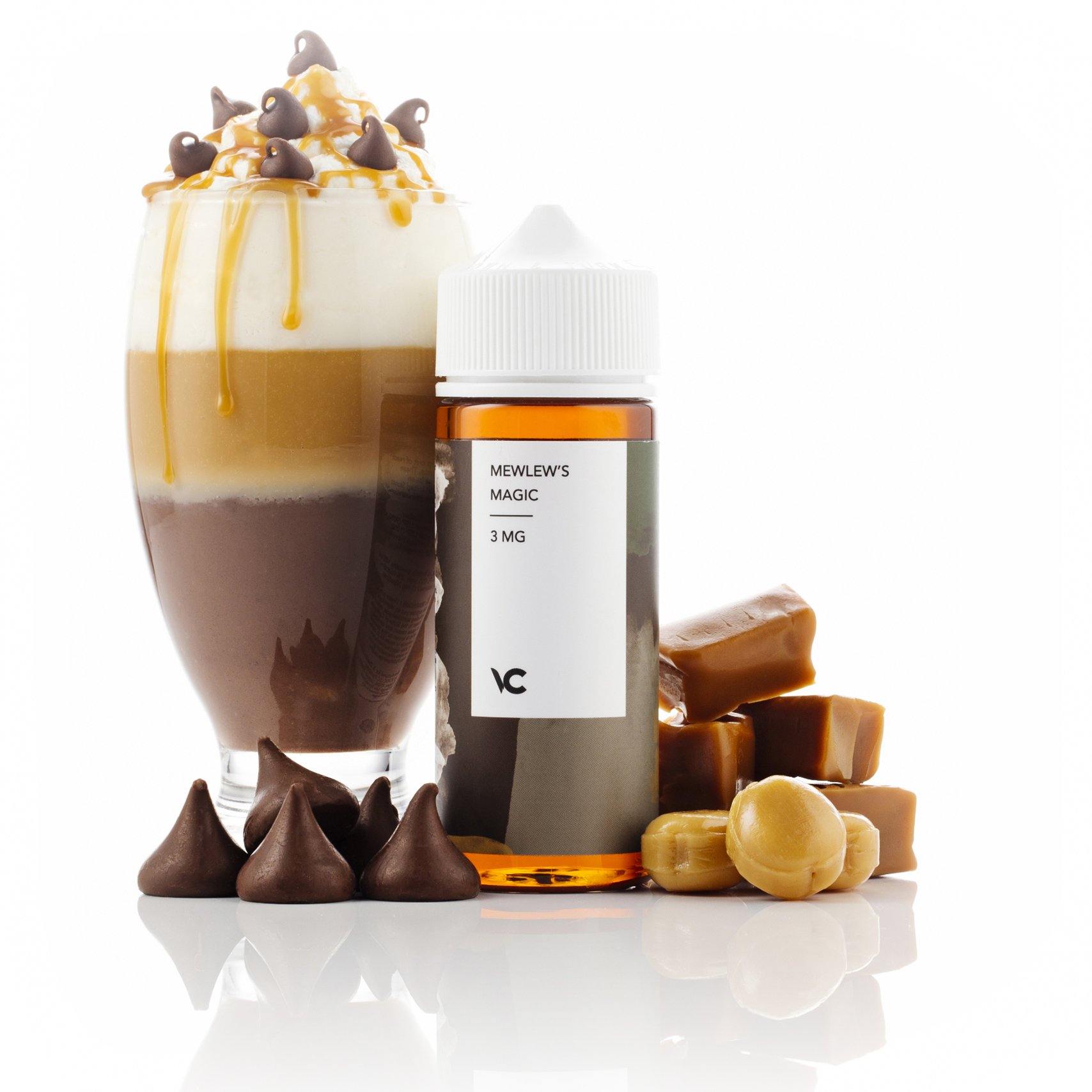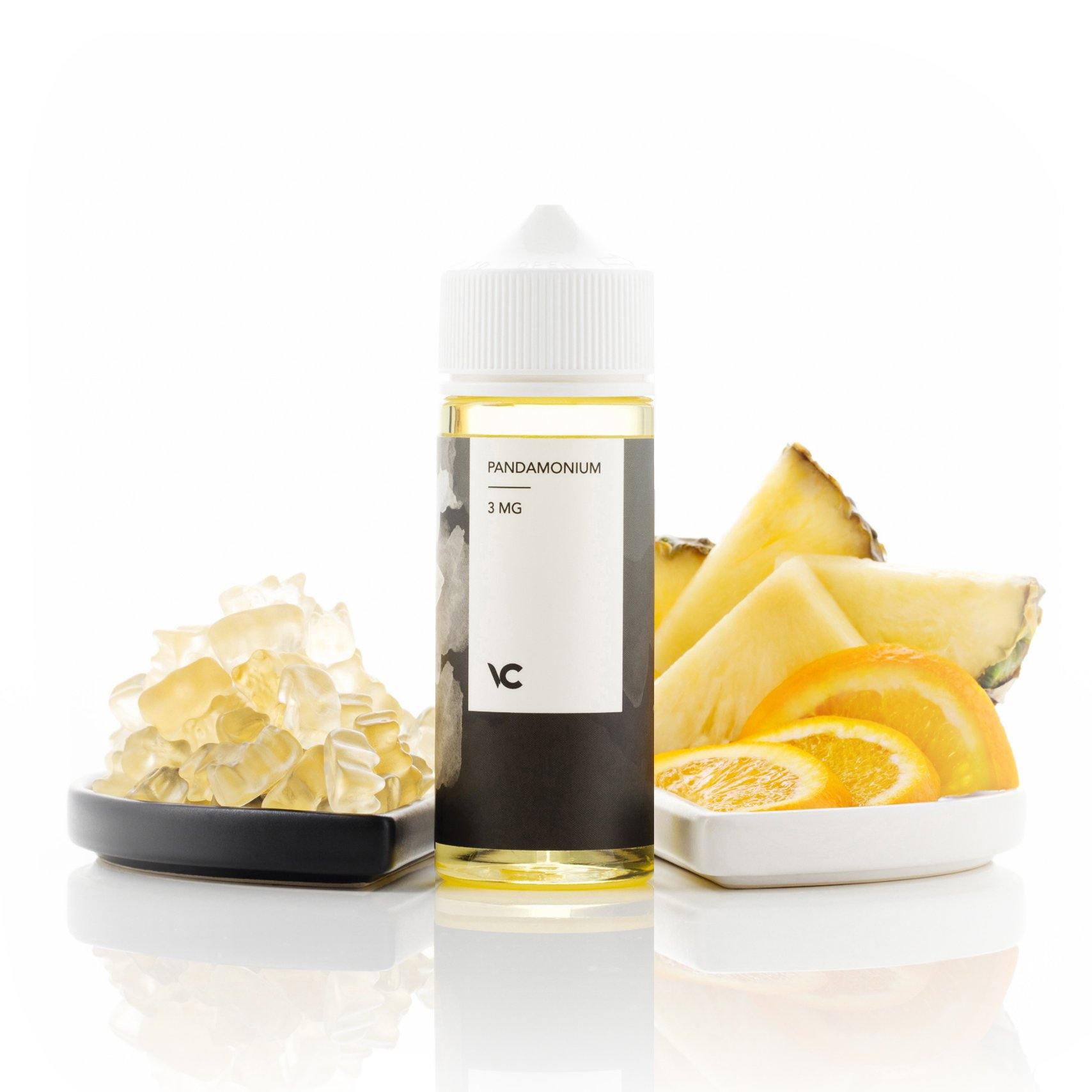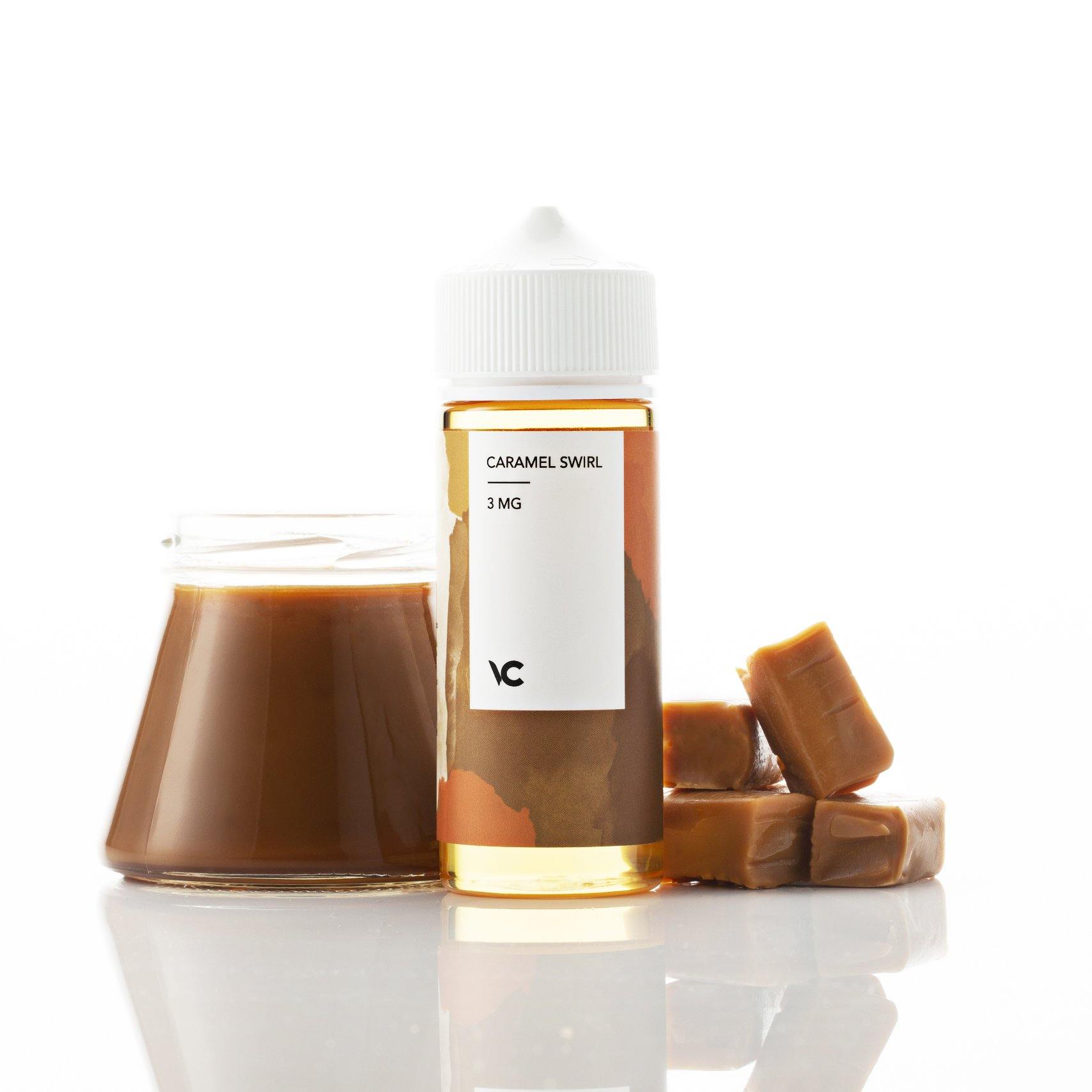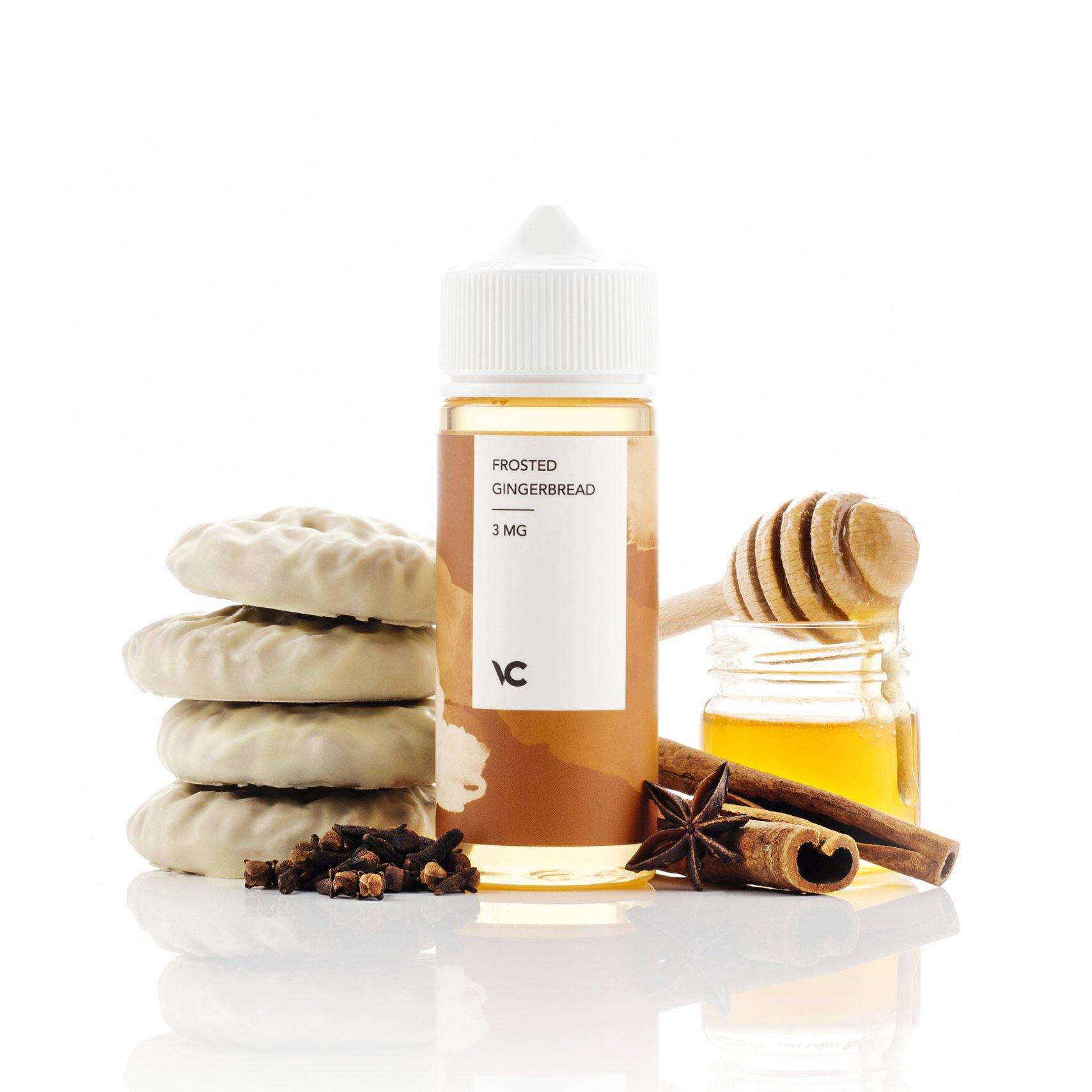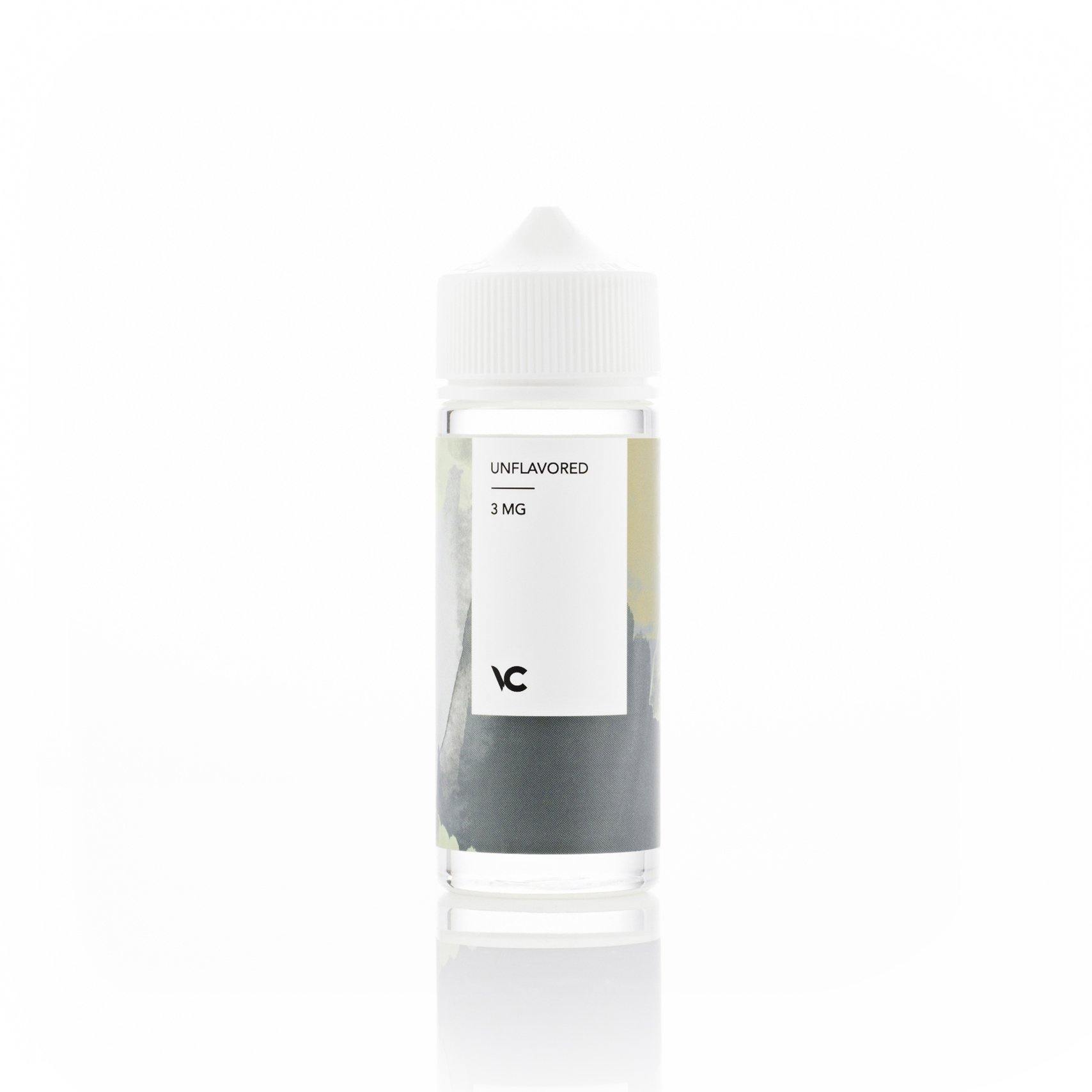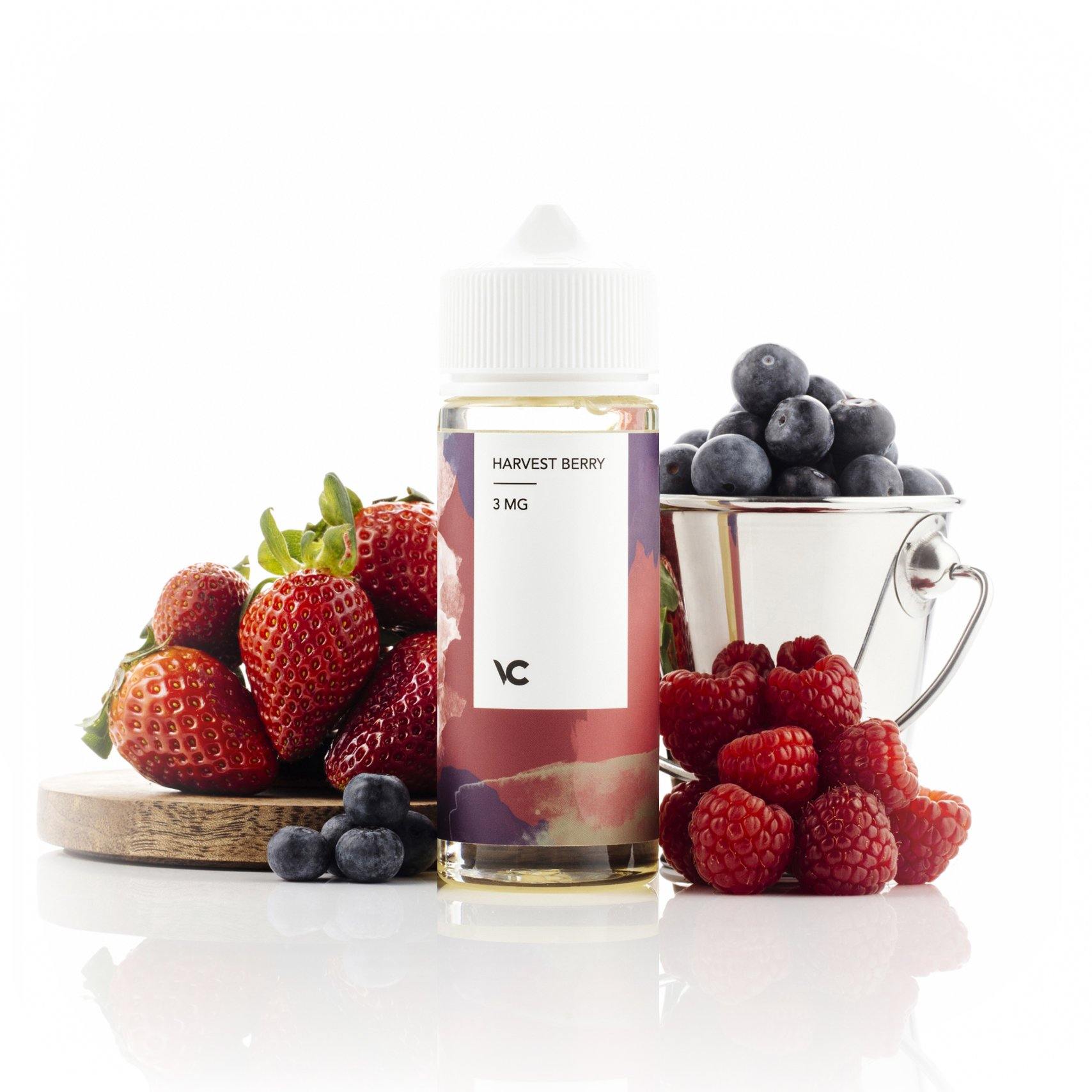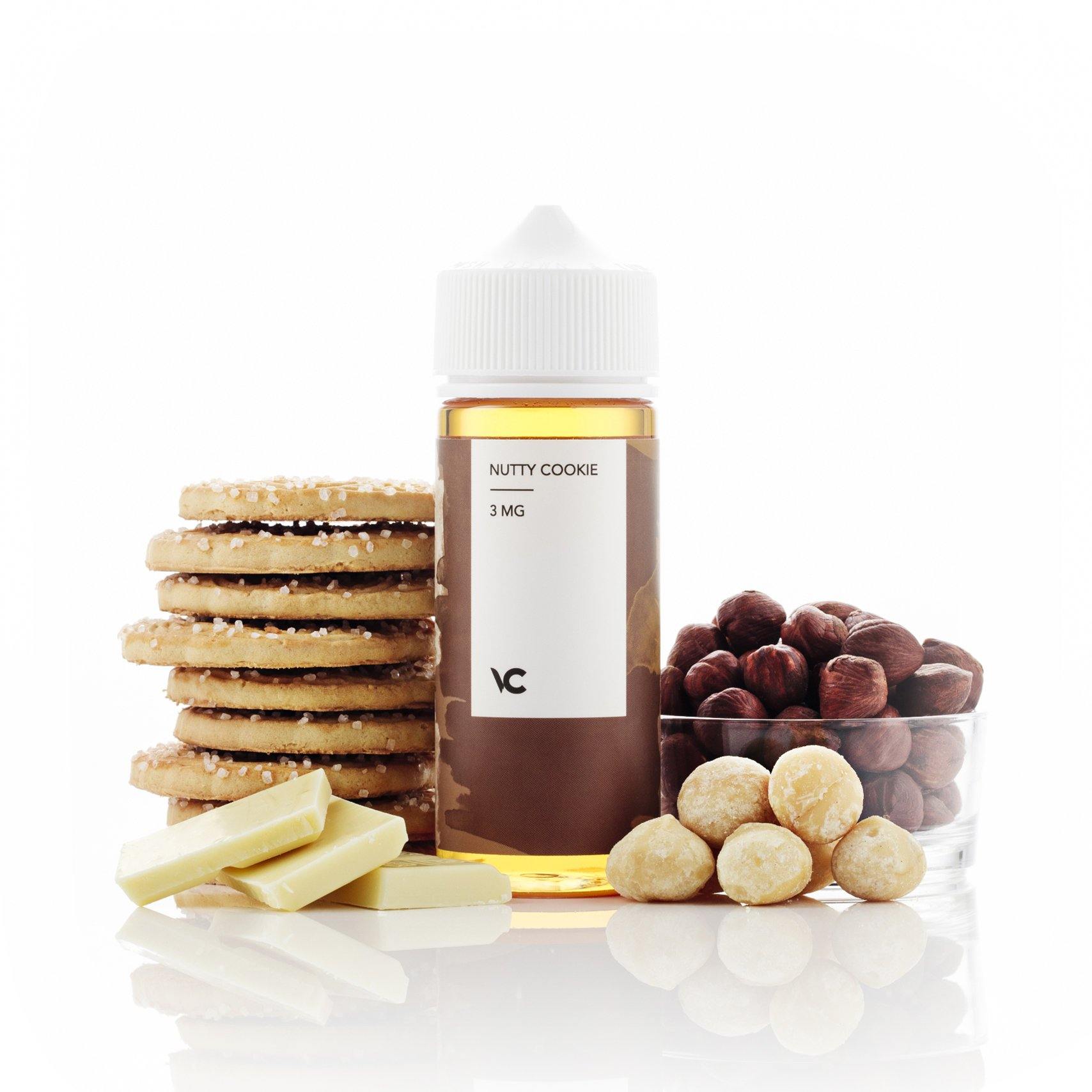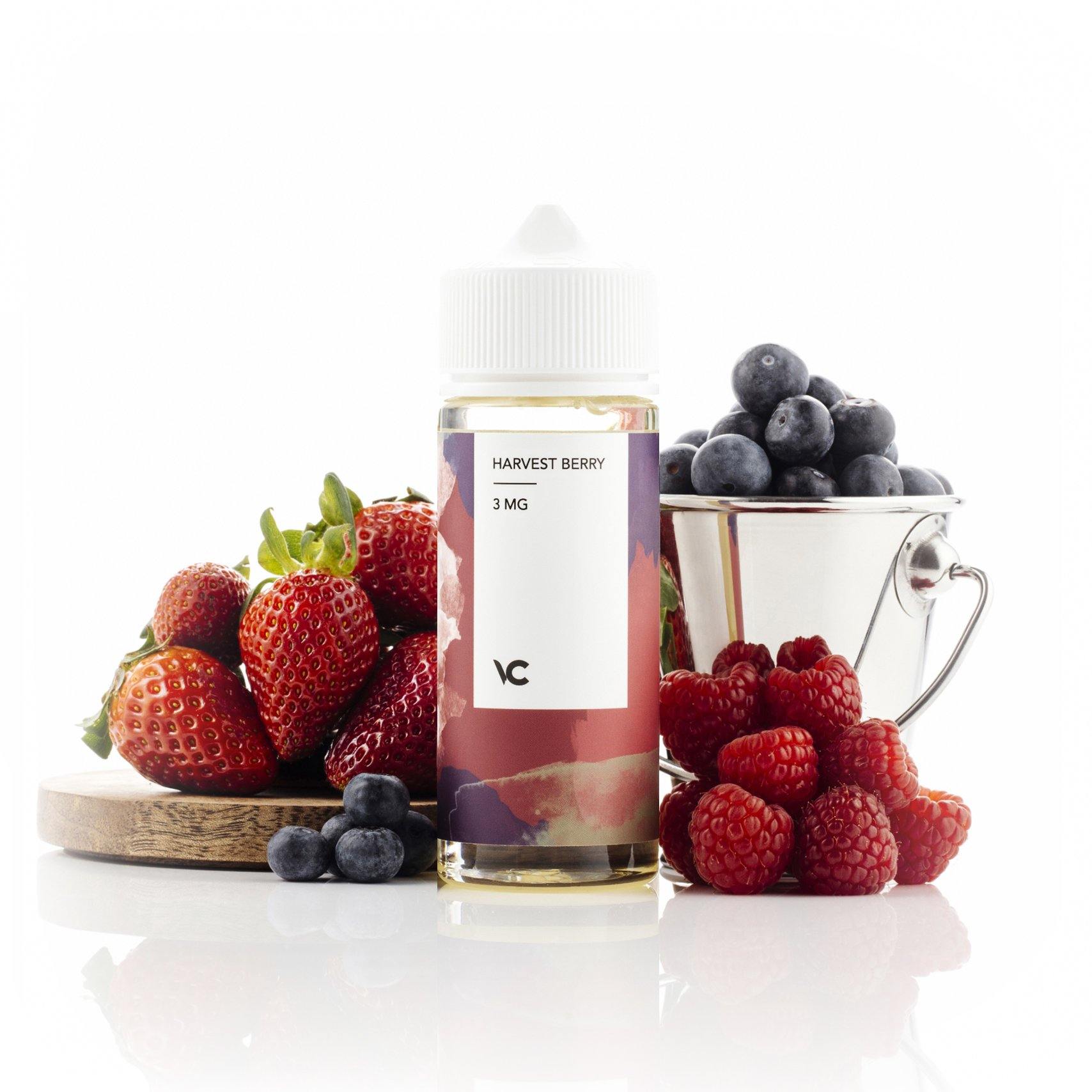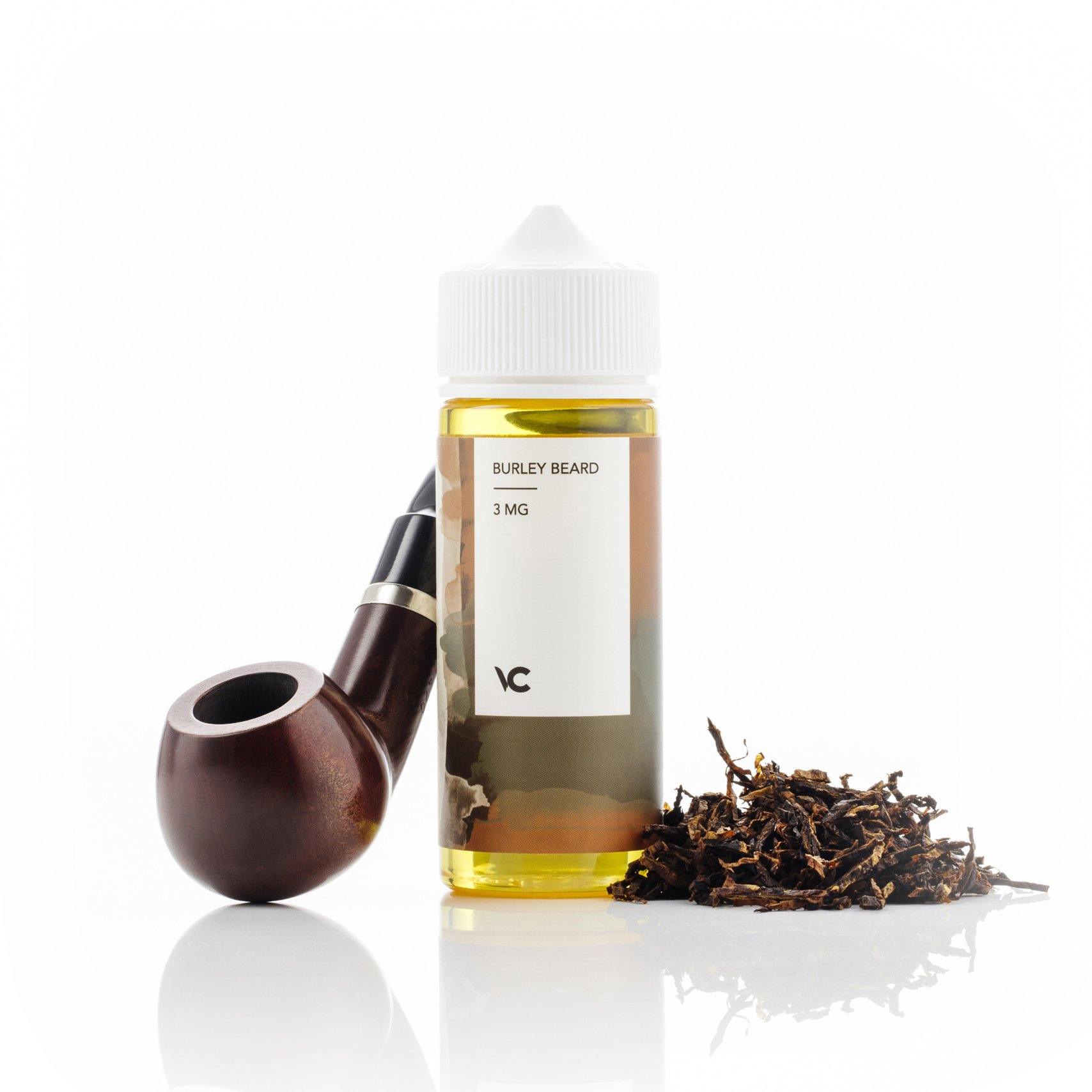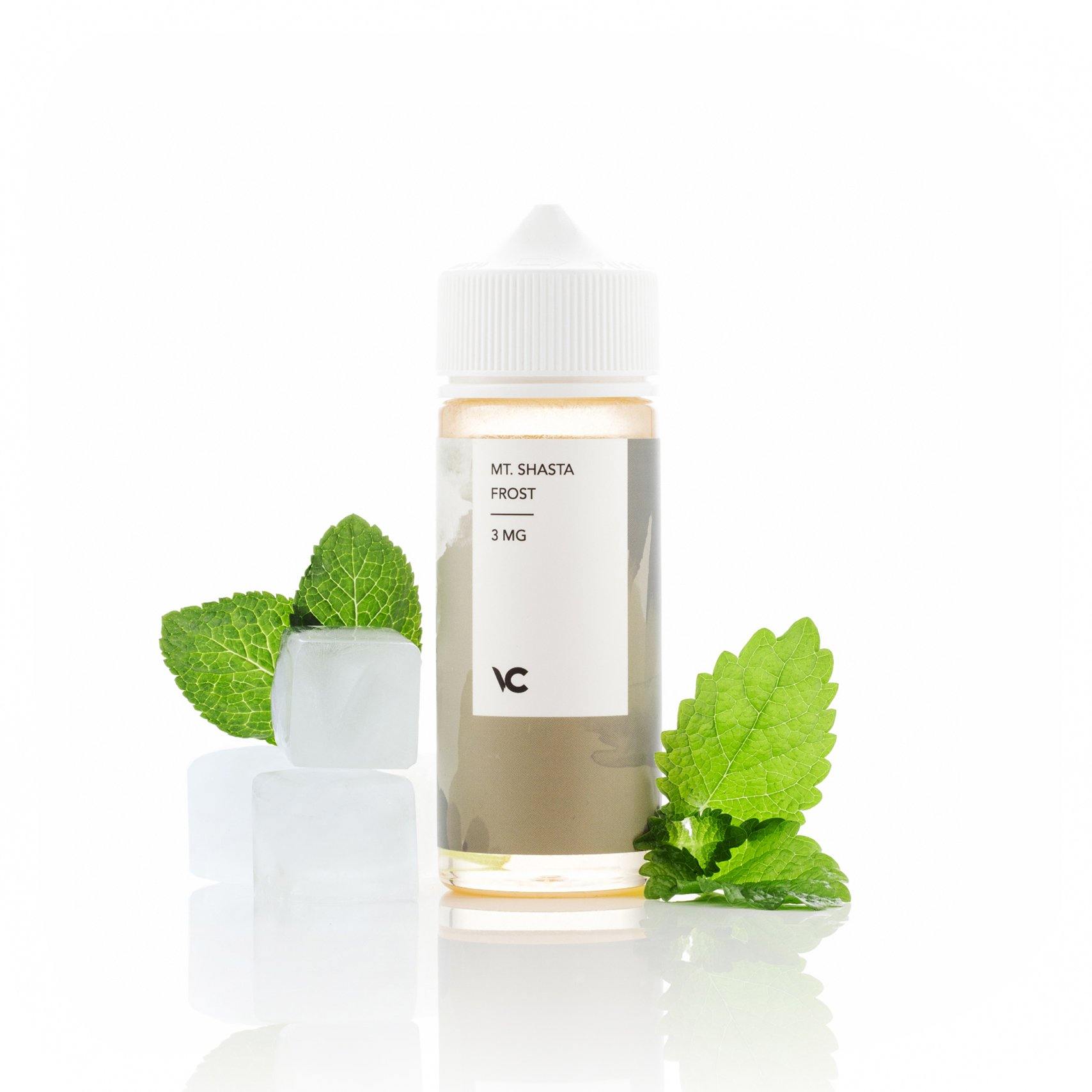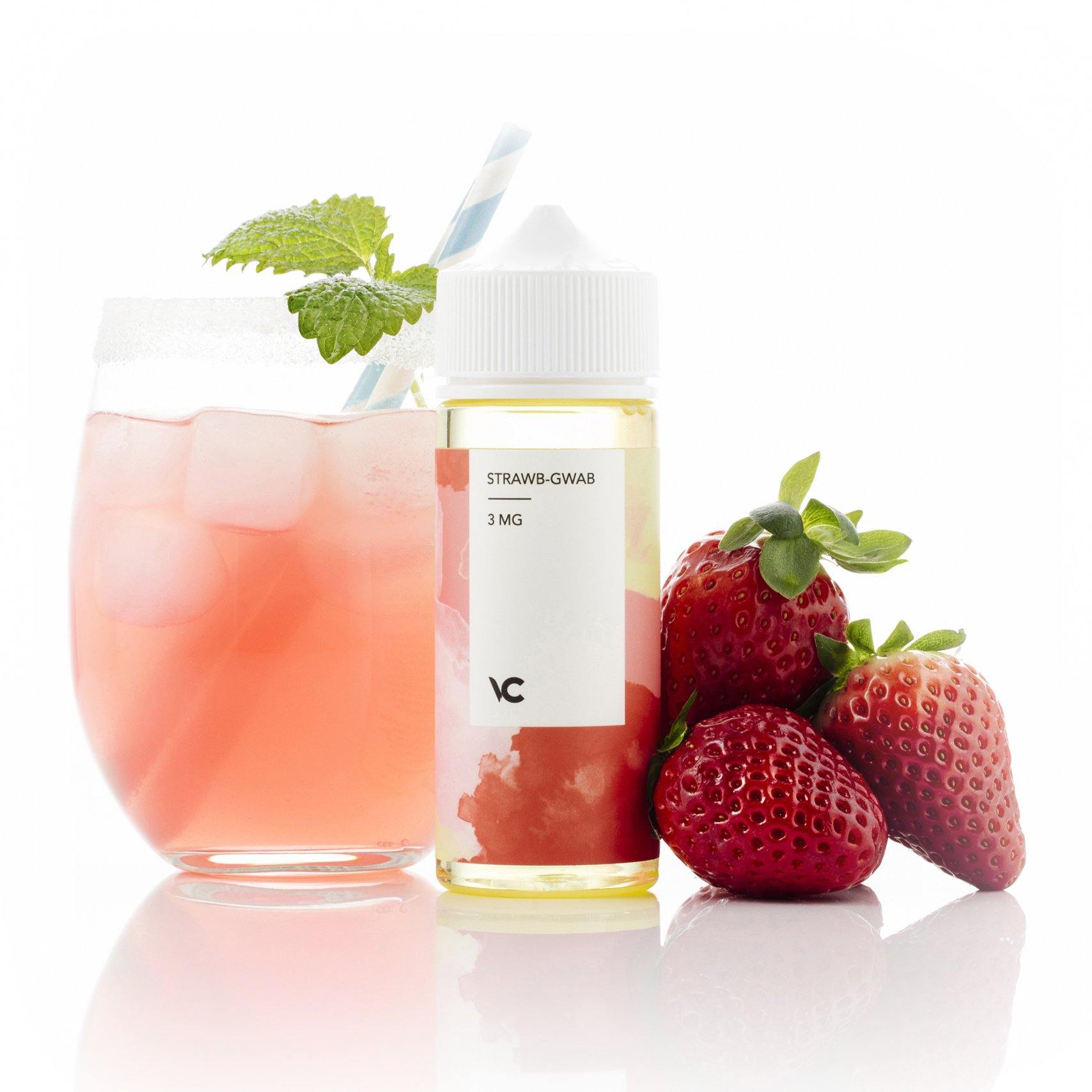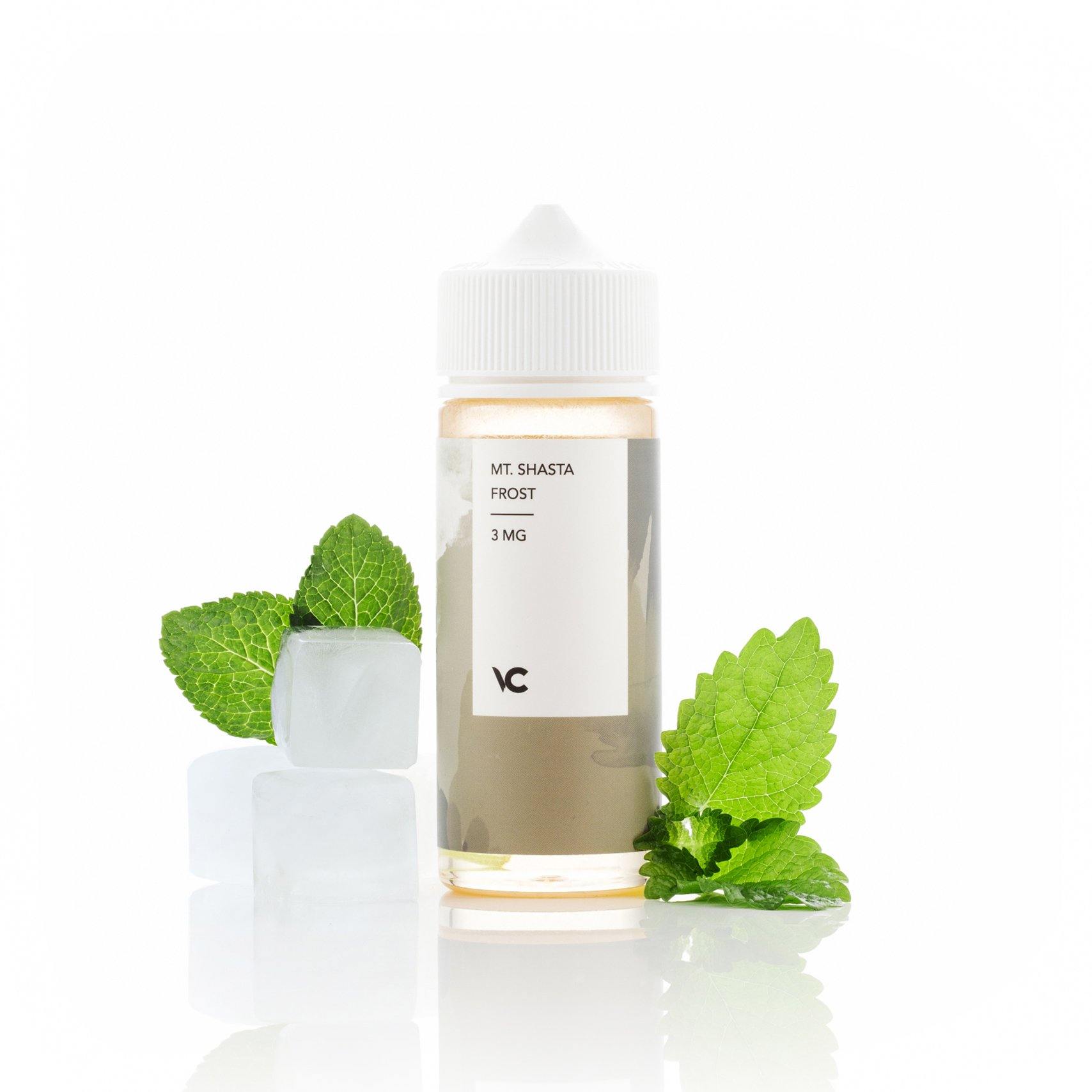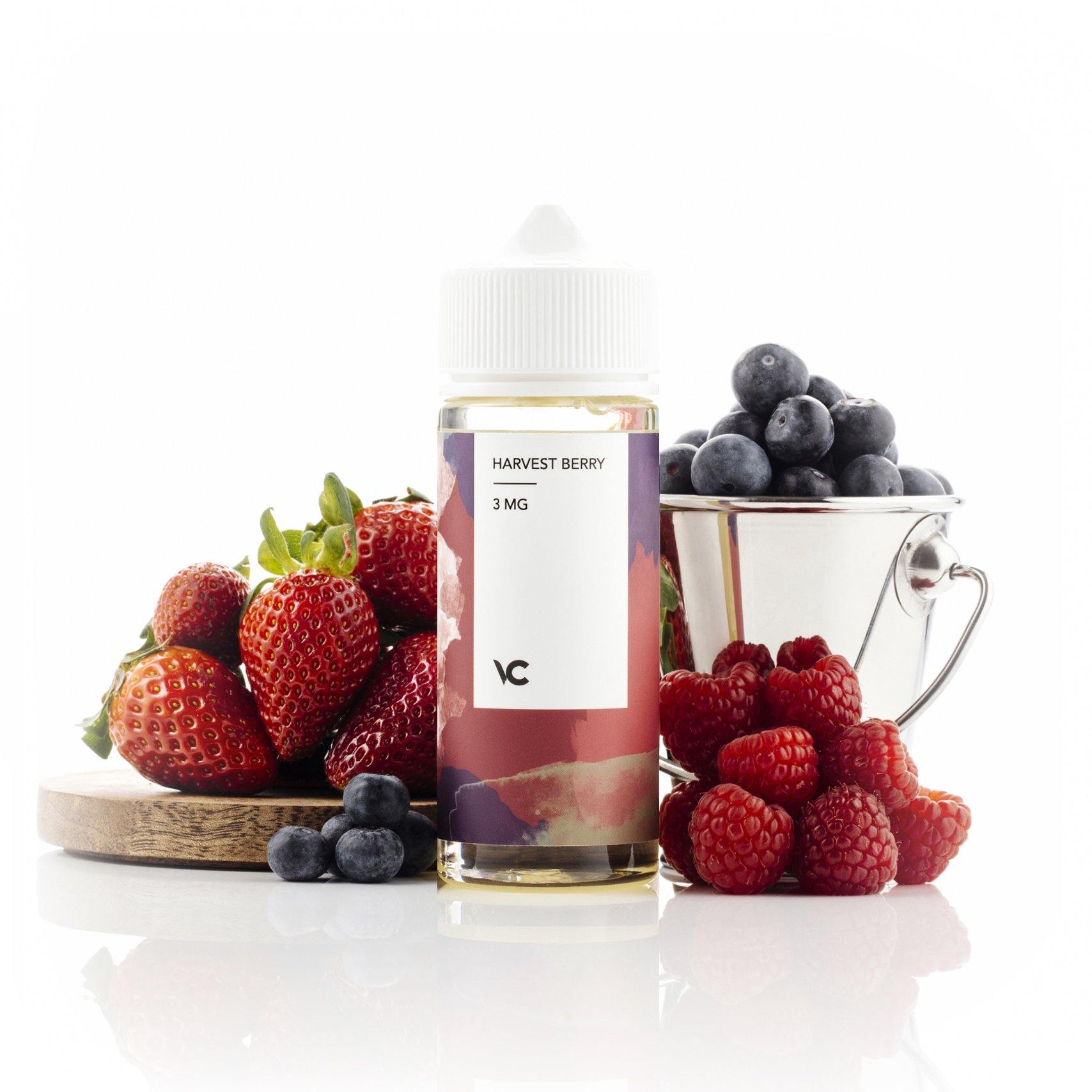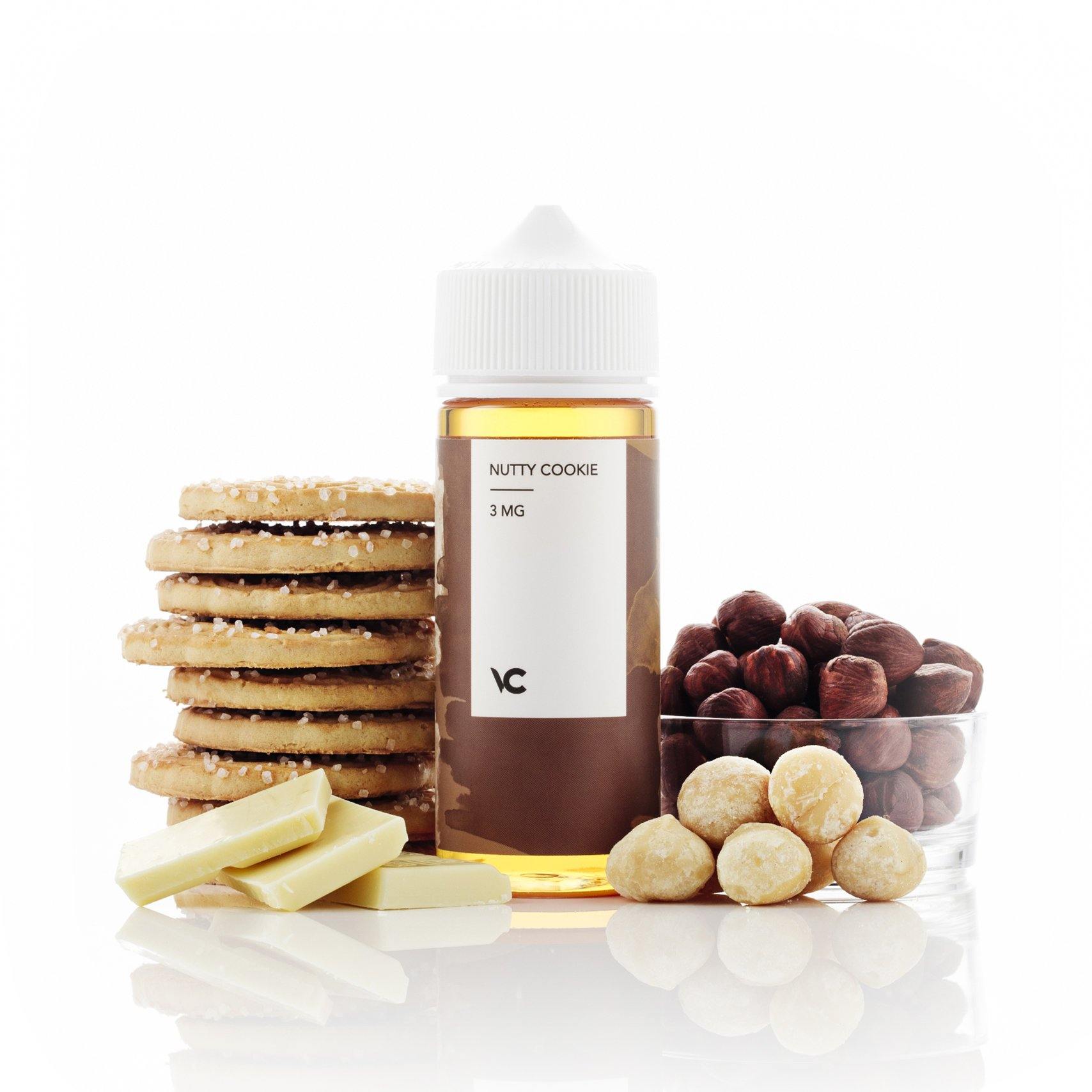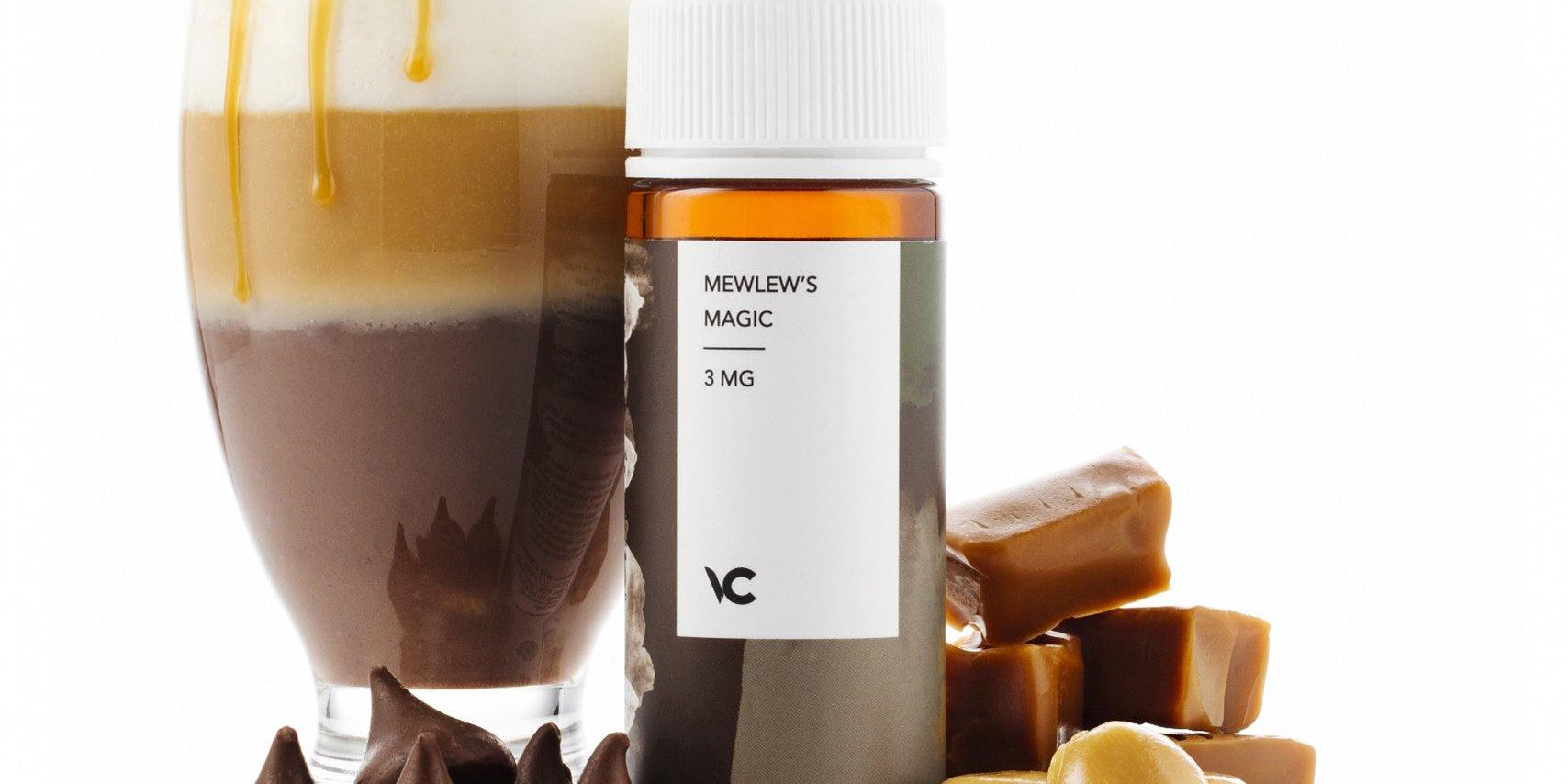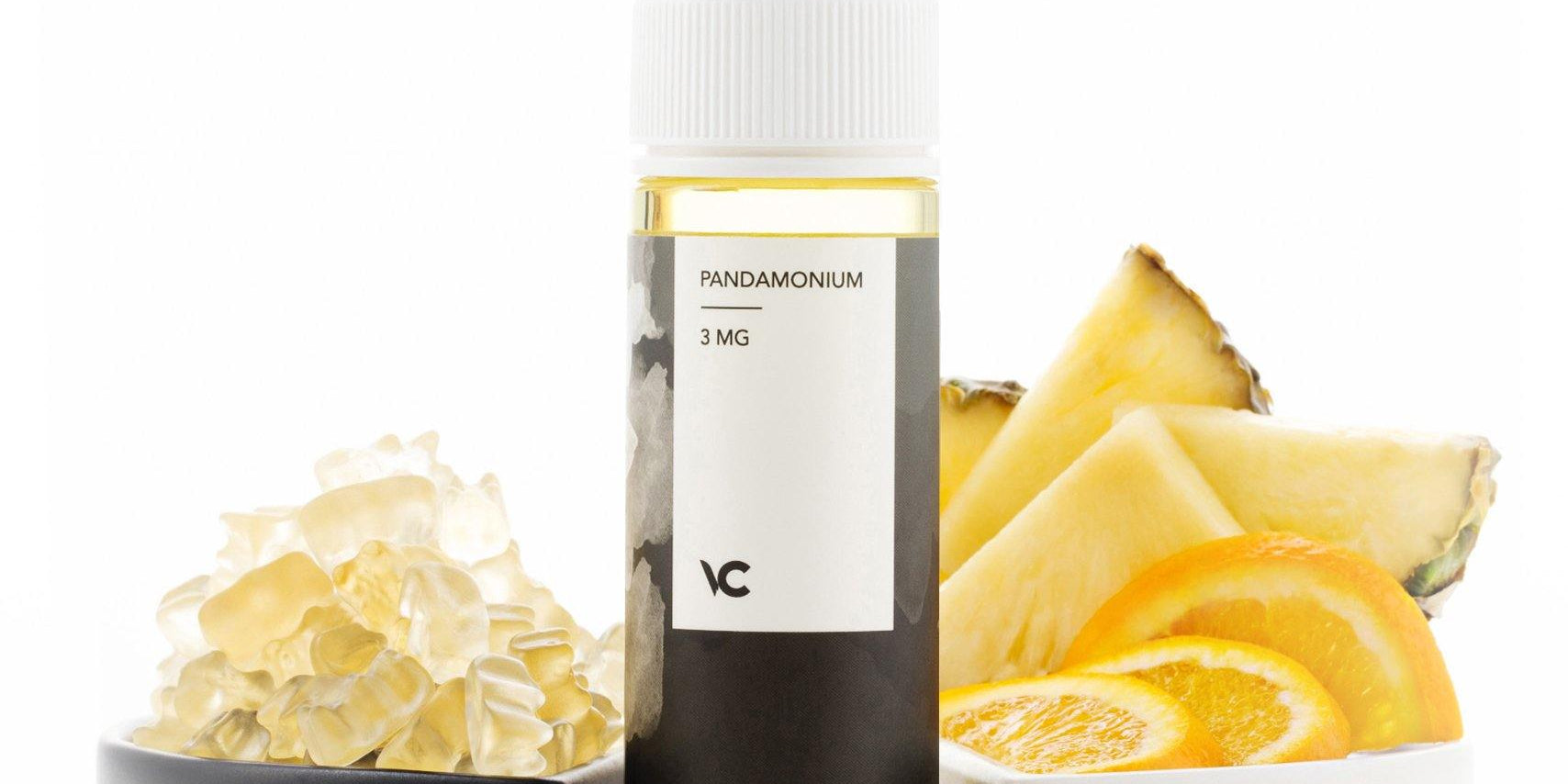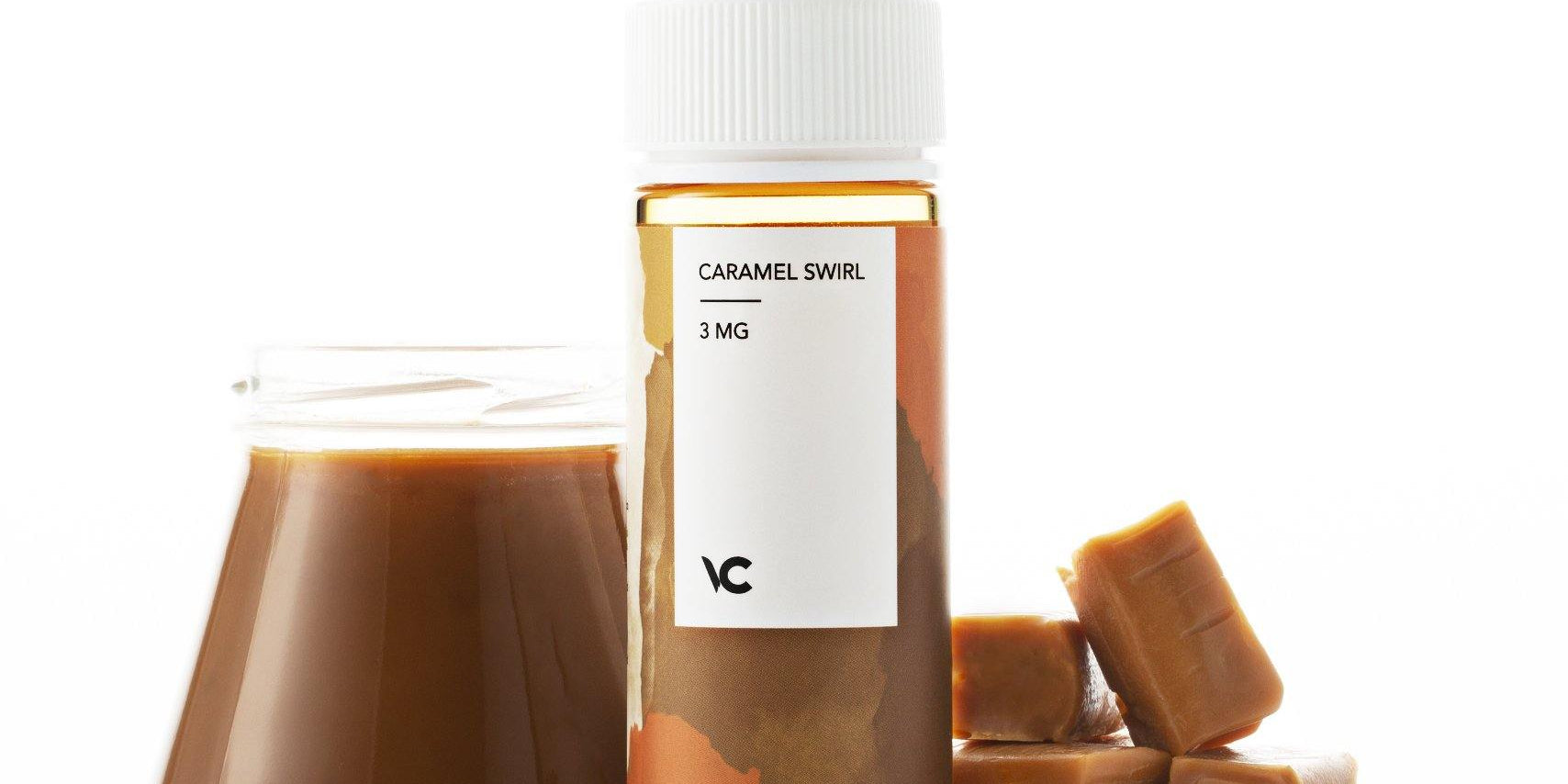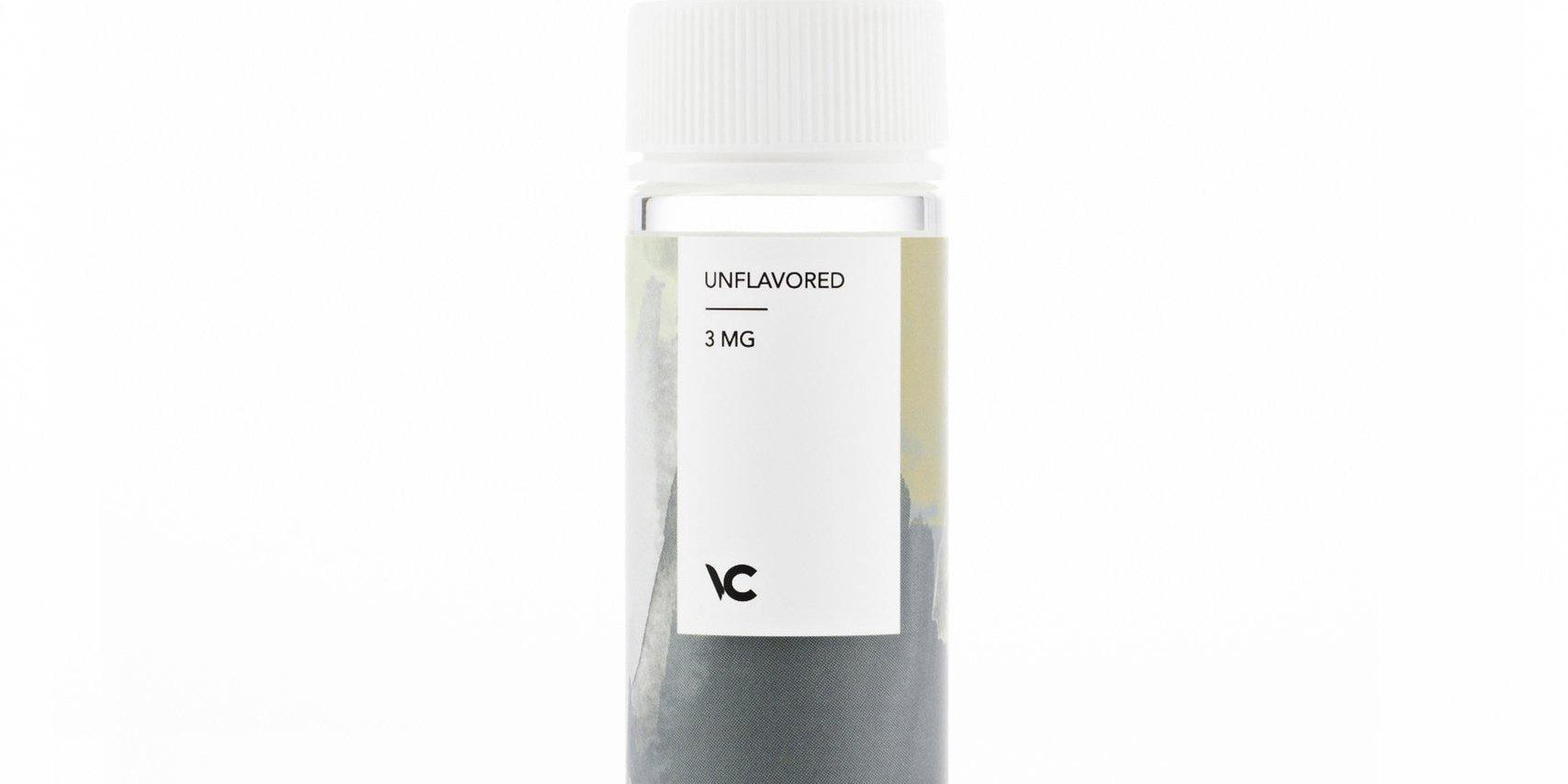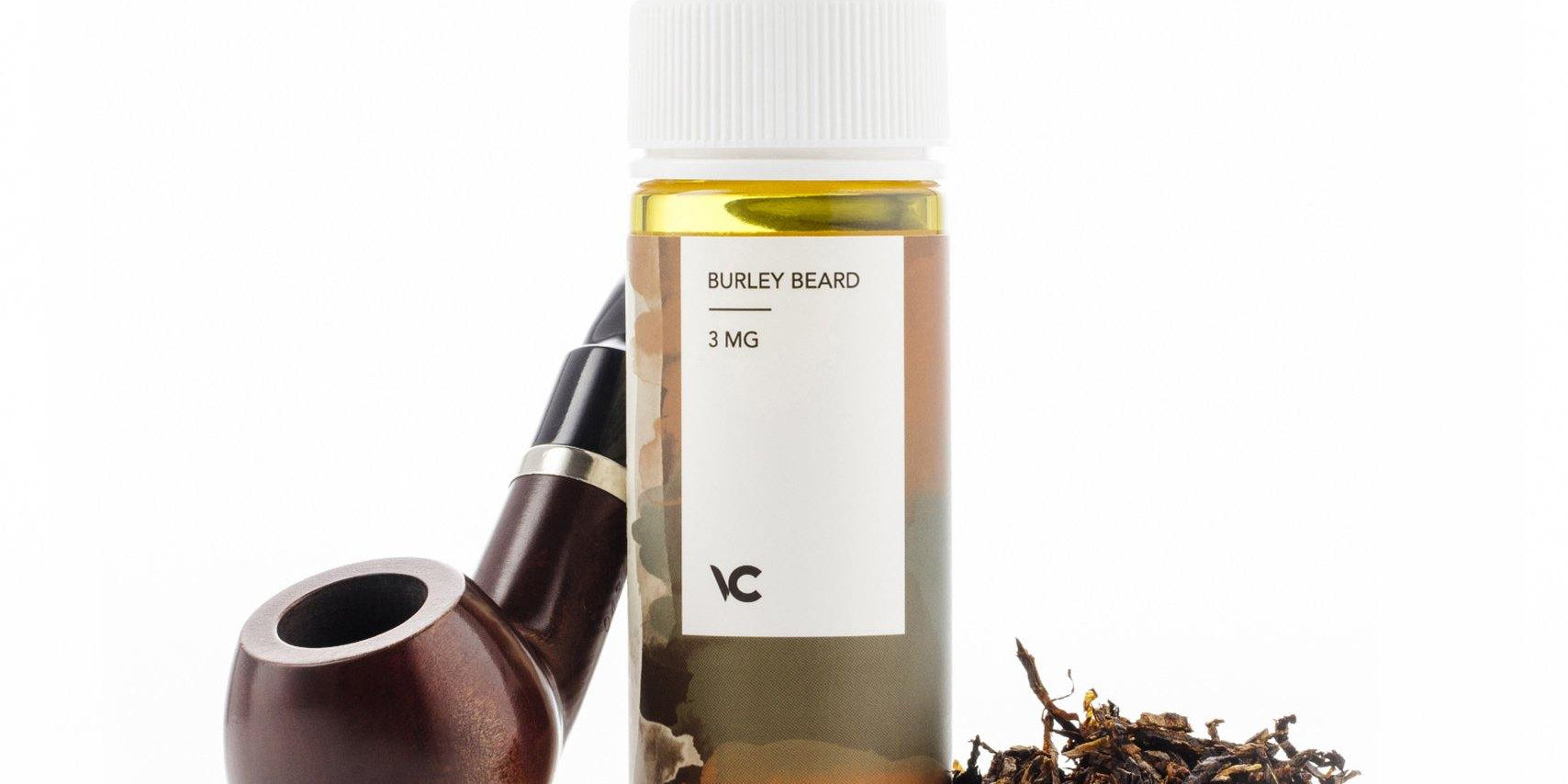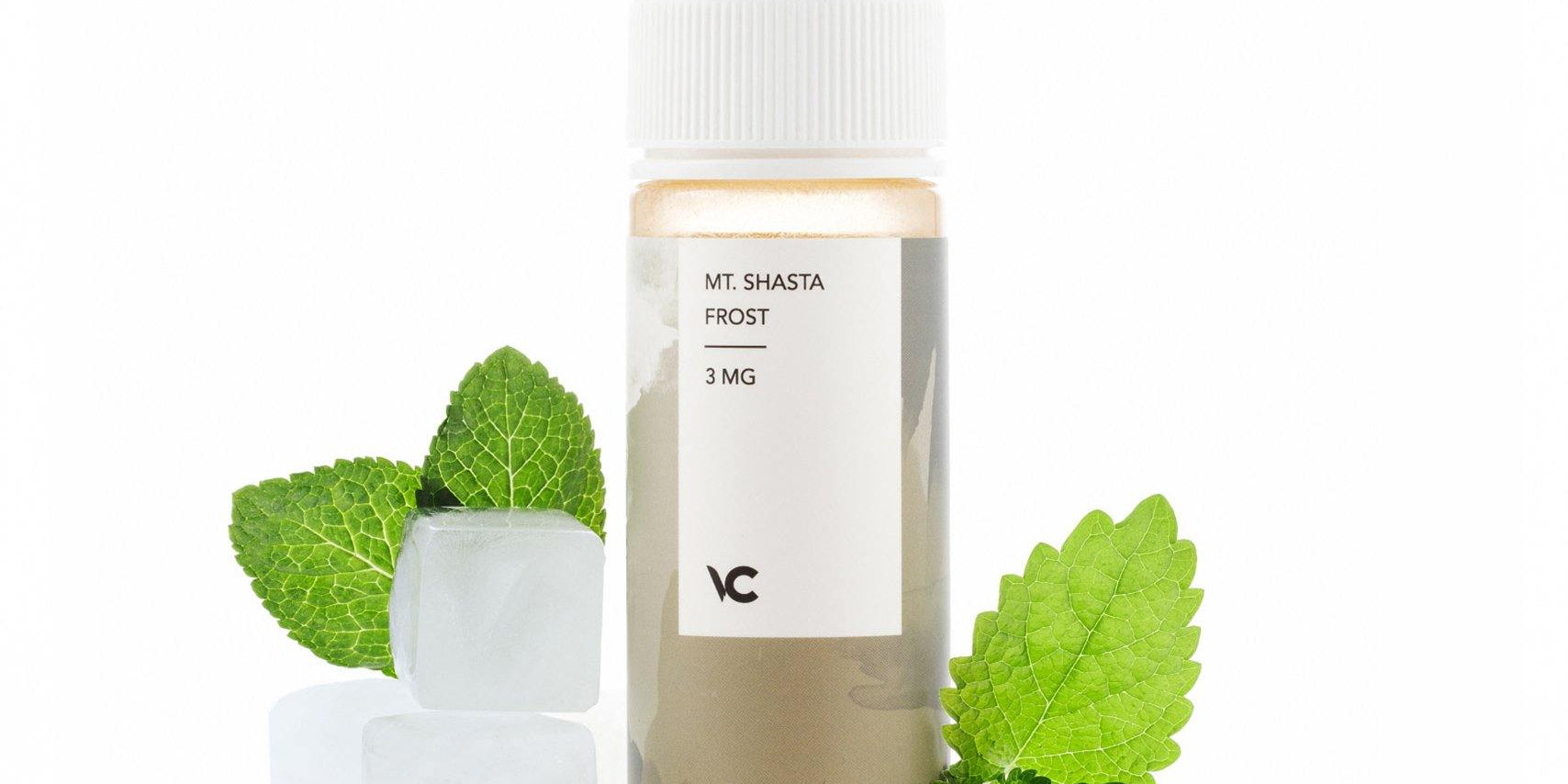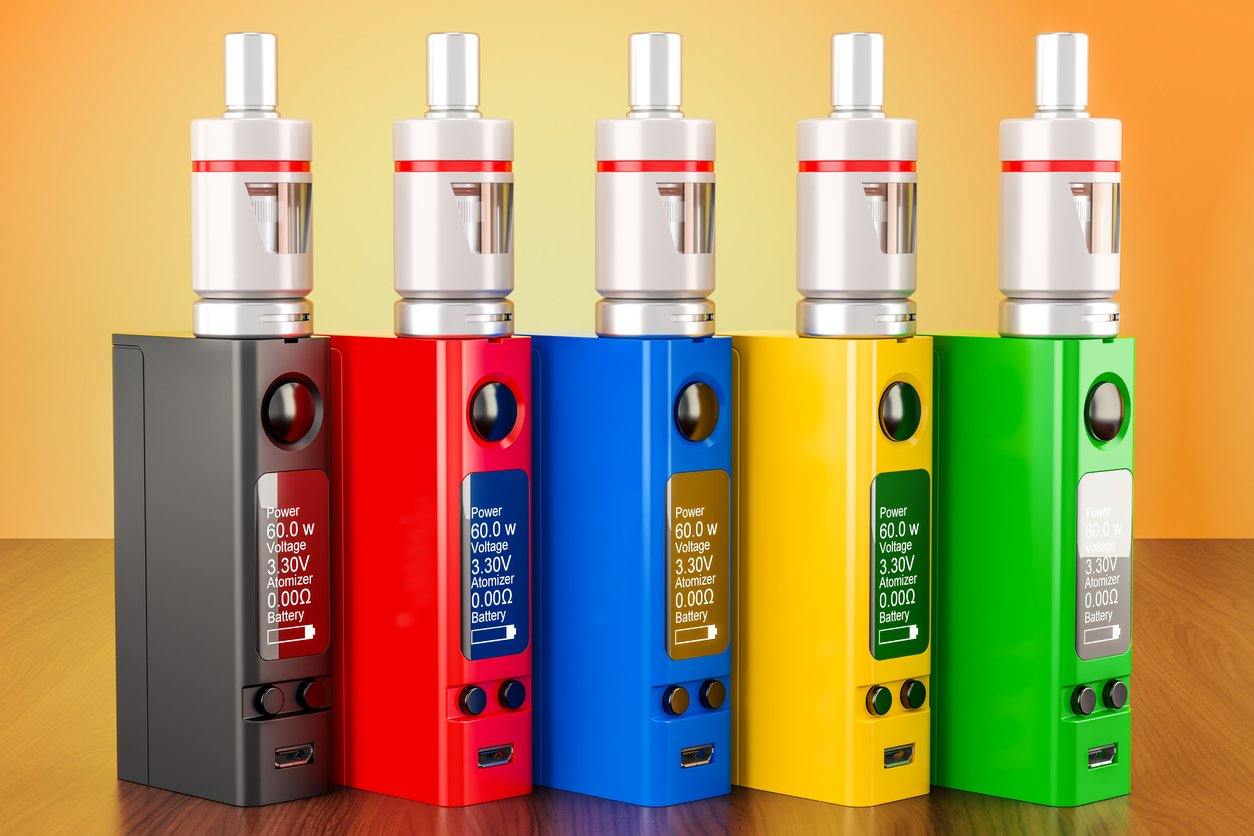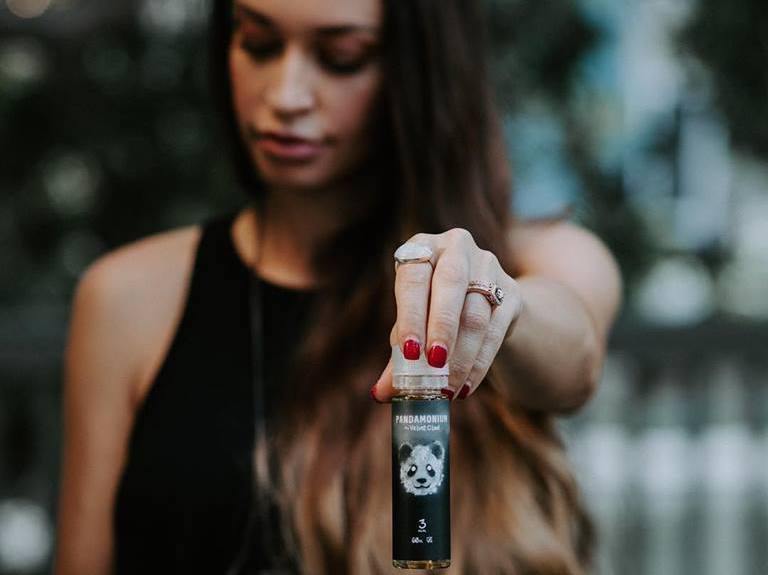Are vaping products packaged with an aim of attracting kids? In May, Food and Drug Administration officials cautioned manufacturers about getting too "cool" with a crackdown on the packaging that resembles children's juice boxes and candy.
Thirteen companies that make or distribute e-liquids that look just a little too much like popular kids' products Tree Top juice, Sour Patch Kids candy and Nilla wafers -- among others -- received warning letters from the FDA dated May 1. The letters outlined what changes these companies need to make and threaten seizure or injunction on products that continue to mirror the kids' food and drink. Four more letters went out May 10, including one with a citation for illegally selling to minors.
Why is the FDA getting upset now? And do child-friendly packages really encourage underage vaping? You might be a bit skeptical, but FDA officials say the big issue is younger children thinking the e-liquids are safe and drinking them. Between January 2012 and April 2017, more than 8,000 cases of liquid nicotine exposure in kids under 6 years were reported to the National Poison Data System. Consumption of nicotine liquids can cause seizures, respiratory issues and even death in small children.
"It is easy to see how a child could confuse these e-liquid products for something they believe they've consumed before -- like a juice box. These are preventable accidents that have the potential to result in serious harm or even death," FDA Commissioner Scott Gottlieb, M.D., said in a statement from the FDA. "Companies selling these products have a responsibility to ensure they aren't putting children in harm's way or enticing youth use."
The FDA is allowed to take action under the Federal Food, Drug, and Cosmetic Act, which prohibits making products that imitate any kid-friendly foods but really are not. The Federal Trade Commission is also getting in on the action by citing unfair and deceptive advertising guidelines.
Several of the manufacturers impacted said that they already had or would be making a change soon. Lifted Liquids owner Nicholas Warrender, who got one of the letters, told a Washington Post reporter that he'd actually already made a change to a package that featured a man with a beard, which would serve as a visual indicator that the product was for adults. The biggest problem, he said, was getting in touch with the FDA to sort out the issue. Other manufacturers said they'd be pulling the problem products until a change could be made.
However, there may be some added incentive for the FDA to take this action now. Since 2016, under what's called the "Deeming Rule," the FDA has had the authority to regulate vaping products as "tobacco products." (The name originates from the FDA "deeming" that any electronic nicotine delivery system is subject to regulation under the Tobacco Act -- a controversial assertion that has, so far, held up legally.) Following a series of proclamations about when and how the organization would regulate vaping products, the FDA set a date in 2022 for ensuring all industry products were compliant with its rules. Anti-smoking groups like the Campaign for Tobacco-Free Kids and the American Academy of Family Physicians protested the date pushback and subsequently filed a lawsuit in March to try and force that 2022 date to be moved up. By cracking down on products that specifically appeal to children, the FDA may be trying to make nice with these consumer groups and attempt to avoid additional legal action. The concern now: FDA officials may try to take some flavors of e-liquids off the market. Stay tuned for how that will play out.
So if your favorite liquid products are off the shelf briefly while they undergo a packaging change, or show up with a decidedly less "cool" look, you'll know the reason why. Look for the FDA to continue to enforce regulations against products that appear to be aimed at or marketing to kids as part of a new Youth Tobacco Prevention Plan.
IS YOUR GUT TELLING YOU TO VAPE?:
Well, maybe your gut isn't actually encouraging you to vape. But a Newcastle University study released in PeerJ, a peer-reviewed journal focused on biology and medicine, shows evidence that vapers have healthier bacteria throughout their digestive systems.
In fact, the bad Prevotella bacteria that is linked to colon cancer and colitis is on a level with non-smokers, as is the healthy bacteria Bacteroides. The study was super small -- only 10 smokers, 10 vapers and 10 non-smokers as a control -- but the findings may be a reason to look more in-depth at the positive impact switching to vaping may have on human health.
"More investigation is needed but to find that vaping is less-damaging than smoking on our gut bacteria adds to the incentive to change to e-cigarettes and for people to use them as a tool to quit smoking completely," said the study's lead author, Dr. Christopher Stewart from Newcastle's Institute of Cellular Medicine.
Future research may include testing the difference between the gut bacteria of both men and women who've made the switch to vaping. The Newcastle study only included two women.
ANOTHER STATE MAY JUMP TO 21:
Massachusetts is the latest state to consider increasing the age for legally purchasing tobacco or vaping products from 18 to 21. On May 9, the state House passed a bill to raise the age limit; this will now go to the state Senate for consideration and looks likely to pass, as the Senate previously passed a similar bill of their own.
If it does indeed pass, the law in Massachusetts will go into effect on Jan. 1. Consumers who are between the ages of 18 and 21 on that date will be grandfathered in and can legally purchase vaping products -- making practical implementation about 3 years away.
Massachusetts joins a trend in raising the age for purchasing tobacco and nicotine products. California, Oregon, New Jersey, Maine, and Hawaii all have recently passed legislation that would prohibit sales of tobacco and e-cigarettes to those over 21. Several other counties and municipalities have a similar over-21 policy. Legislators in Illinois and New York are also trying to pass statewide over-21 laws.
TRYING TO GET ON THE GOOD SIDE:
Industry giant JUUL Labs isn't waiting around for regulatory agencies to take more action against them. Following an April communication where the FDA requested specific information from the company on how it tracks child and teen use of their e-cigarette products, JUUL has announced it will donate $30 million over the next three years to combat underage vaping.
The company also says it supports legislation moving the legal age for purchasing and consuming e-cigarette products to 21. In most states, the legal age is 18.
"Our objective is to provide the 38 million American adult smokers with meaningful alternatives to cigarettes while also ensuring that individuals who are not already smokers, particularly young people, are not attracted to nicotine products such as JUUL," the company's Chief Administrative Officer, Ashley Gould, said in a press release.
ONLINE SALES STILL OK IN CT:
Connecticut lawmakers have abandoned the section of a bill that would have banned all online sales of vaping products. In an attempt to bring vaping products in line with tobacco products, which can only be sold face to face within the state, state House representatives had proposed putting an end to sales of e-cigarettes, e-vapors, and e-liquids through the web.
Rep. Cristin McCarthy Vahey (D-Fairfield) explained that the lawmakers were simply trying to tighten restrictions on sales by creating "the requirement of face-to-face purchases in retail establishments" and did not think through the impact on online sales. Other states successfully regulate sales of age-restricted products like alcohol through requirements through services that provide ID checks and specific methods of delivery that require shipments to be signed for by an adult with valid identification.
Online retailers argued against the proposed ban and legislators removed that portion of the bill. The amendment that would require in-person sales and ID checks was removed by a 145-3 vote.
ODDS AND ENDS:
The industry group Vapor Technology Association (VTA) hosted a webinar Wednesday, May 16 on the role the FDA may continue to play in the industry marketing and innovation. Check the VTA's social media accounts for a recap on the webinar. ... A Florida man died May 5 when his vape pen exploded. The specific pen was made in the Philippines and distributed by Smok-E Mountain. The U.S. Fire Administration reports that there were 195 incidents between 2009 and 2016 where pens exploded or caught fire, though those didn't result in a death. To reduce the risk of any vape pen exploding, don't carry loose batteries in your pocket, mix battery ages or brands, or charge with a phone charger. ... Australian researchers have found that people with mental illnesses like schizophrenia and bipolar do better switching from smoking to vaping than quitting nicotine cold turkey. The patients in the study who vaped had fewer mental health issues. ... There's a clear gap between Americans' feelings on vaping and those of our friends across the pond. Fewer than 5 percent of Brits believe vaping is as dangerous as smoking, while nearly a third of U.S. citizens questioned felt the same, according to a poll conducted by YouGov.
Note - as this story went to press, news started breaking about possible changes to the Cole-Bishop amendment - we will cover this in our next installment.
